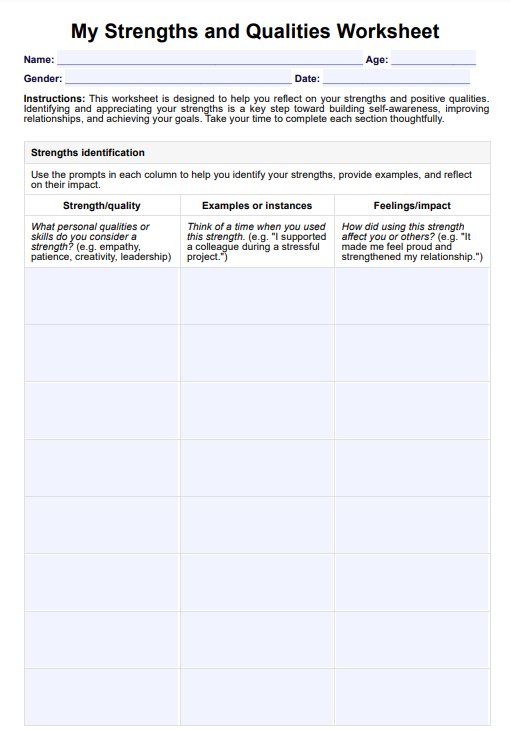A My Strengths and Qualities Worksheet is a structured tool designed to help individuals and professionals identify and reflect on their personal strengths, character strengths, and personality traits. This worksheet enables individuals to recognize their abilities, counter negative self-talk, and improve their confidence by focusing on qualities like communication skills, problem-solving skills, and effective communication. It is used in various contexts, including personal growth, career development, and enhancing workplace productivity.

My Strengths and Qualities
Equip your clients with a My Strengths and Qualities Worksheet to foster self-discovery, boost confidence, and enhance well-being.
My Strengths and Qualities Template
Commonly asked questions
The worksheet is an excellent resource for preparing clients for a job interview. It encourages them to reflect on specific examples from a previous job, such as demonstrating a particular skill or how they handled tasks effectively. By identifying and articulating their professional strengths, clients gain confidence and can present themselves as a valuable asset to potential employers.
Yes, the worksheet is highly versatile and can be applied in various contexts beyond therapy. For example, it can be used in workplace settings to identify employee strengths, address employee weaknesses, and boost employee morale. The worksheet fosters a positive environment that enhances collaboration and productivity by recognizing and appreciating individual contributions.
EHR and practice management software
Get started for free
*No credit card required
Free
$0/usd
Unlimited clients
Telehealth
1GB of storage
Client portal text
Automated billing and online payments











